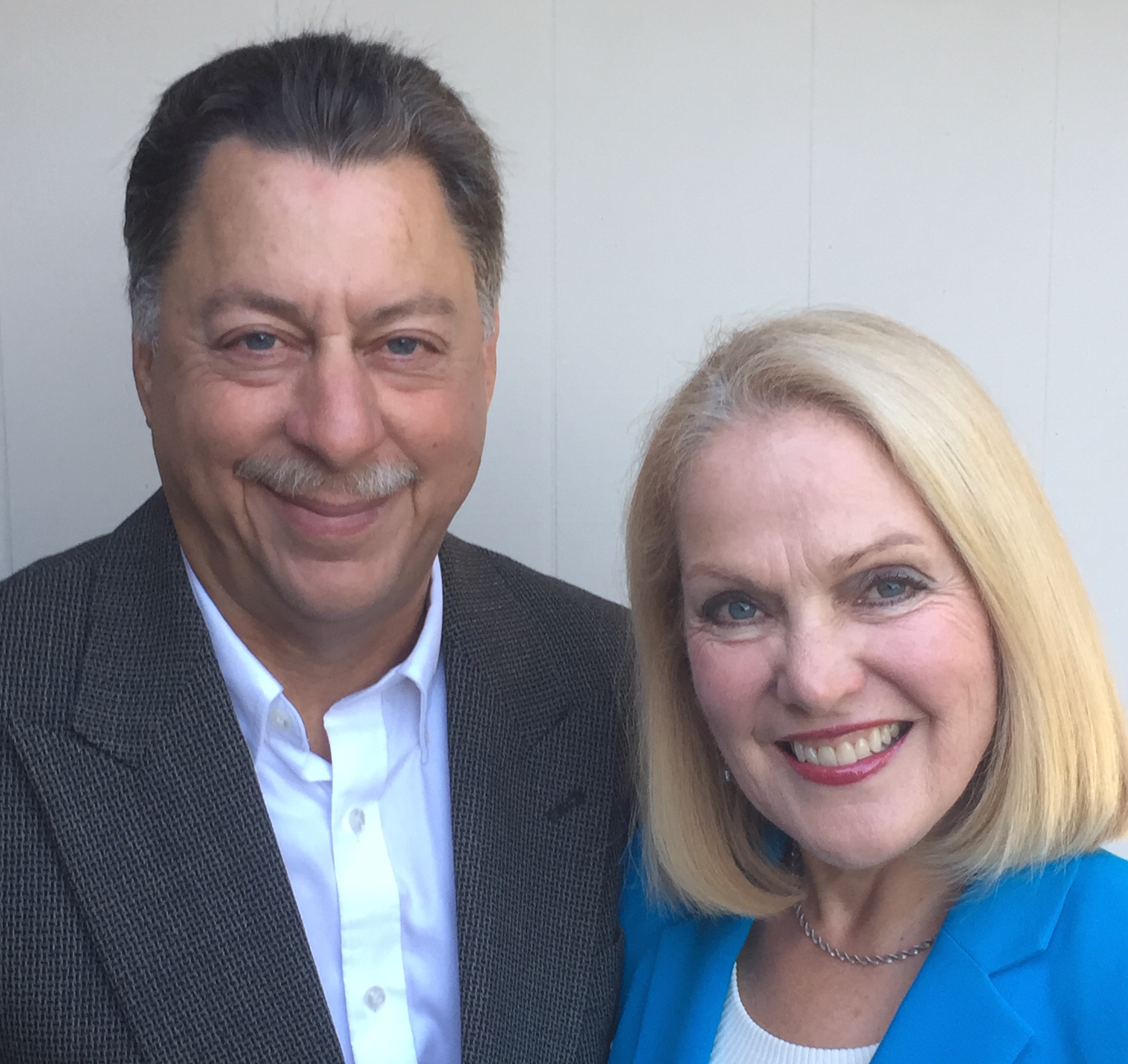
Apr 24, 2017 | aging, aging investor, diminished cognition, elder investor, elderly, finances for elders, financial advisors, financial capacity, financial elder abuse, financial judgement, handling money for aging parents, handling money for seniors, investor, scammers, senior citizen investor, senior investor, seniors finances
What To Watch For: Aging Clients and The Sweetheart Scam
If it didn’t happen so often, there would be no need to warn your single, widowed clients about it. But every day, someone gets taken in by a “special someone” who appears to have only your client’s interests at heart. The special someone is a scam artist who knows just how to get an unsuspecting lonely man or woman into the web of deception. And then they finagle money out of your client and run.
Some of these scammers are skillful repeat offenders. Some just see an opportunity and proceed to milk it for all it’s worth. Take the case of Tommy, whose wife was ill with cancer. He used to take his clothes to the local dry cleaner every week and he got friendly with the woman who ran the business. She loved to chat and gossip and he was lonely with his caregiving, cooped up with the daily chores he had to do for his ailing wife. Norma, the dry cleaner heard all about it.
Just after his wife passed, Tommy got a visit from Norma. She was so consoling and comforting. He felt like he had a real friend. She had heard about his wife’s illness for over a year and was ever so sympathetic. She also knew he had money. Within a month she had moved in with Tommy.
Over the next six months of giving Tommy her undivided attention, she managed to persuade him to give her “loans” of over $300K. She promised to stay with him forever. He loved the flattery and feeling special. No sooner had Norma gotten the last of what she could easily take, she promptly sold the dry cleaning business and disappeared. This is not such an unusual story.
Here’s what every financial professional needs to know about the Sweetheart Scam. Professional predators comb the obituaries for stories about the beloved widow or widower left behind. They look for those who have been with a deceased who was a business leader, a banker, a financially successful person. They choose the ones who may be likely targets, the survivors who have means. They scope out how to meet them and seize the opportunity to take advantage of loneliness. They will stop at nothing to get in the door. And sooner or later they always need “a temporary loan” or a little help to get out of an unfortunate jam. If it works, they up the ante. This can go on until they have bankrupted a widow or widower. It will at least drain available cash if no one is watching.
That’s where you come in, the financial professional with the ability to notice when unusual withdrawals are coming out of your client’s account. Once the scammer has gotten control over your client’s emotions, it may be too late to stop the scam. Your client is “in love” or at least addicted to the showered on attention. She won’t believe your warning then. The heads-up must come early, before an opportunist has a chance to cast a spell.
Here’s the takeaway: any recently widowed client in your book is a potential target. Do these things:
- Gently raise the subject of being careful of any stranger he/she meets soon after the loss of a spouse. Warn with empathy and facts.
- If your client claims he’s met a “special someone” do some digging. Google the person he names. Ask a few probing questions. See what your client may not be able to see. Share the data you glean with your client.
- Be sure you have contact information for a family member or trusted friend of your client whom you can call if you see something suspicious. Call them if you think your client is in danger, particularly if your client doesn’t want to hear your warning.
That protective posture you take on can save your client from disaster.
Financial elder abuse takes many forms besides the Sweetheart Scam. It is called “the crime of the century”, it is so prevalent. With the right know-how, you can stop it and keep your clients safer. Take a deeper dive into this subject in a book written just for you, Succeed With Senior Clients: A Financial Advisor’s Guide to Best Practices. Get a look at it here.
Carolyn Rosenblatt, RN, Elder Law Attorney & Dr. Mikol Davis, Gerontologist
AgingInvestor.com and AgingParents.com
|
|
Dr. Mikol Davis and Carolyn Rosenblatt, co-founders of AgingInvestor.com
Carolyn Rosenblatt, RN, Elder Law Attorney offers a wealth of experience with aging to help you create tools so you can skillfully manage your aging clients. You will understand your rights and theirs so you can stay safe and keep them safe too.
Dr. Mikol Davis, Psychologist, Gerontologist offers in depth of knowledge about diminished financial capacity in older adults to help you strategize best practices so you can protect your vulnerable aging clients.
They are the authors of "Succeed With Senior Clients: A Financial Advisors Guide To Best Practice," and "Hidden Truths About Retirement And Long Term Care," available at AgingInvestor.com offers accredited cutting edge on-line continuing education courses for financial professionals wanting to expand their expertise in best practices for their aging clients. To learn more about our courses click HERE
|

Apr 11, 2017 | aging, aging investor, declining health, diminished cognition, elder investor, elderly, finances for elders, financial advisors, financial capacity, financial elder abuse, financial judgement, handling money for aging parents, handling money for seniors, senior citizen investor, senior investor, seniors finances
In a recent issue of Investment News, a study of financial advisors looked at this question. 591 advisors were asked about their experiences with elder financial abuse. One of the surprising findings focused on those advisors who knew or suspected abuse but did not report it.
A significant percentage of those who did not report abuse gave as a reason that they did not know who to contact. What is most troubling about this finding is that not knowing who to contact is such a simple problem to solve. Historically your regulators have never required that you have the name of a trusted contact for your client in order to open a file for that person. Here at AgingInvestor.com and AgingParents.com, where elder financial abuse comes up often, we think it is extremely short-sighted to be without a trusted contact or two in every client’s file. Isn’t it obvious that you need someone to call if a client gets into danger, whether it’s elder abuse or not? No one gets out of here alive and a client can live for quite a long time, developing cognitive impairment along the way. That puts a person at much higher risk for financial abuse.
New FINRA rules will require that you make “reasonable efforts” to get a trusted contact from your clients. We assure you, reasonable efforts are a lot easier to make when your client is signing up than they are when your client is 92 and forgetful or suspicious of everyone’s motives.
From us, two professionals who have worked with countless elders and their families over the last 10 years, we have three tips for every financial professional handling a client’s finances:
- You can’t ensure that your client will be competent for financial decisions forever. Be realistic! People are living longer and they may develop dementia or other cognitive impairment. Get at least two trusted contacts in every file for every client age 65 or older. Why two or more? One trusted contact might end up being the very person who is abusing your client–a family member.
- Get smart about the basics of recognizing red flags of diminished capacity. We offer a simple free checklist to help you. Click on the green button here to get yours now. These signs are warnings that your client is more vulnerable to manipulation by others.
- Know how to report financial elder abuse. You don’t have to be certain that abuse has occurred. You do need to know who may be doing it, when and how, in general (e.g., pushing your client into large, unexplained withdrawals). A reasonable suspicion is enough. It’s ok if you’re wrong. And you can do it anonymously. Call Adult Protective Services in the county where your client lives if you think someone is ripping off your vulnerable client.
Some advisors are worried that they’ll get sued for reporting suspected financial abuse. This is incorrect. Your regulators want you to report it. If you do what is reasonable, you are not a target. However, if you know that your impaired client is being financially abused and you do absolutely nothing, liability for failure to act is certainly possible.
by Carolyn Rosenblatt, RN, Elder Law Attorney, & Dr. Mikol Davis, Gerontologist, co-founders of AgingInvestor.com
|
|
Dr. Mikol Davis and Carolyn Rosenblatt, co-founders of AgingInvestor.com
Carolyn Rosenblatt, RN, Elder Law Attorney offers a wealth of experience with aging to help you create tools so you can skillfully manage your aging clients. You will understand your rights and theirs so you can stay safe and keep them safe too.
Dr. Mikol Davis, Psychologist, Gerontologist offers in depth of knowledge about diminished financial capacity in older adults to help you strategize best practices so you can protect your vulnerable aging clients.
They are the authors of "Succeed With Senior Clients: A Financial Advisors Guide To Best Practice," and "Hidden Truths About Retirement And Long Term Care," available at AgingInvestor.com offers accredited cutting edge on-line continuing education courses for financial professionals wanting to expand their expertise in best practices for their aging clients. To learn more about our courses click HERE
|

Apr 10, 2017 | aging investor, elder investor, elderly, financial advisors, financial elder abuse, scammers, senior citizen investor, senior investor
Is financial abuse happening to your clients right now? Of course, it is. There is no escaping it. A recent study puts the amount stolen from elders every year in our country at over $36B. With a problem as big as this, no group of elders is immune. If you took a survey of your existing clients all age 65 or older and asked them how many have ever been taken advantage of financially, you would be sure to get some clients who would admit to this. If you look at your own experience and count up any instance you know of, whether it is in your family, your neighborhood or your book of business, you will likely find some financial abuse as well.
Why Is This Important for You?
The amounts stolen, fraudulently taken or just snatched from the unwary, are shocking. Remember that when your client loses assets, you lose fees. Portfolios that shrink because of fraud from predators take money from you, a manager, too.
That is the most basic reason this should be important to you as a financial professional. Doing the right thing to keep your clients safe is certainly a motivator as well. It shows that you do care about them. And beyond that, the regulators are increasingly aware that financial professionals are in a position to take action and, sometimes, to stop and prevent financial abuse. They will soon get past merely urging you to take action and to report abuse. They will ultimately make it mandatory.
And we think you can do more proactively than merely to understand how to report abuse after the fact. It would be great to catch more criminals but that is extremely difficult in many cases because they are very clever at evading law enforcement. And since family members are the most frequent abusers, we have an added problem in that many elders are reluctant to report abuse by their own to law enforcement. Mom just won’t call Adult Protective Services on her son, even when she knows he has stolen from her. We have seen this with our own eyes here at AgingInvestor.com.
There are many instances of scammers getting into relationships with aging folks by phone or on the internet. The “friendly” relationships become addictive. These thieves persuade the victim to withdraw funds from their accounts. This is where the advisor comes in. Unusual withdrawals are an important warning sign of elder abuse. And when the advisor notices this in a client’s account there are choices available about stopping abuse. They include contacting a trusted other the elder has identified and warning them of what is happening. There should be more than one trusted person identified for every client. And by all means, contact Adult Protective Services and report it if you suspect fraud.
If you are worried about privacy rules, don’t be. The regulators of your industry want you to report abuse. They want you to make every effort to keep aging clients financially safer. If you are not sure about privacy, create a special privacy document that specifically permits you to call a third party with your client’s ok. We can help you do so if you need guidance or a model document.
Financial abuse of your aging clients is likely, sooner or later. Take a deeper dive in our book “Succeed With Senior Clients: A Financial Advisor’s Guide To Best Practices”, written just for you, the financial advisor. See particularly the chapter “Financial Elder Abuse: How You Can Fight the Crime of the Century“. It’s available right now. Click HERE to get your copy today.
by Carolyn Rosenblatt, RN, Elder Law Attorney, & Dr. Mikol Davis, Gerontologist, co-founders of AgingInvestor.com
|
|
Dr. Mikol Davis and Carolyn Rosenblatt, co-founders of AgingInvestor.com
Carolyn Rosenblatt, RN, Elder Law Attorney offers a wealth of experience with aging to help you create tools so you can skillfully manage your aging clients. You will understand your rights and theirs so you can stay safe and keep them safe too.
Dr. Mikol Davis, Psychologist, Gerontologist offers in depth of knowledge about diminished financial capacity in older adults to help you strategize best practices so you can protect your vulnerable aging clients.
They are the authors of "Succeed With Senior Clients: A Financial Advisors Guide To Best Practice," and "Hidden Truths About Retirement And Long Term Care," available at AgingInvestor.com offers accredited cutting edge on-line continuing education courses for financial professionals wanting to expand their expertise in best practices for their aging clients. To learn more about our courses click HERE
|

Apr 7, 2017 | aging investor, finances for elders, financial advisors, retirement planning
With 10,000 Boomers turning 65 every day, no wonder there is so much talk about retirement. You may be planning busily to get your clients a stable income and keep the portfolio on track. But besides advice on how to “have a secure retirement” and “maintain your lifestyle” there’s some important information too few are taking about. That’s the retirement-era mistakes people make that are pretty much guaranteed to leave their families in a stressful mess no matter how well you manage their finances. Long experience here at AgingInvestor.com and AgingParents.com has revealed much about retired older clients. We hear about what your aging clients do and don’t do to make life stressful for their adult children. Here are what we call the Top Three of numerous errors aging clients make that you can at least remind them to avoid. Maybe you don’t get too far into their personal lives and relationships with their adult children, but we think you should go farther than is traditional for you to do. Their financial safety is at stake.
Mistake Number One: They never discuss finances with their spouses or adult kids. It’s private, they think.
The problem with this is that they’re not going to live forever. Family members need to know where the funds are, what you’re managing and what to do when the patriarch or matriarch becomes impaired or dies. Most people do suffer health declines as they age and millions will develop dementia. What then? You can’t take direction from a client who is too incapacitated to make a decision about finances. Encourage family meetings. Persuade your older clients of the necessity to communicate about finances so you can rely on a surrogate decision maker when or if your client loses mental capacity. You need to take leadership on this if the client doesn’t do it. The family needs to be prepared or suffer extreme stress when things go wrong for the aging parent.
Mistake Number Two: They believe they’ll never fall for a scam. They’re way too smart for that.
Very smart and capable folks get taken by scammers every day. In fact, some of your experienced and capable clients develop Alzheimer’s disease and can cover it up for a long time. But they lose financial decision-making capacity early in the disease process when other functions seem fine. Impaired people are more vulnerable than ever. You need to involve your client and family in awareness of the latest scams and fraud targeting seniors. Make it your business to give them information and links to good resources like the AARP Fraud Watch Network. They need to be aware of telephone scams, ID theft, and Internet thieves. When you protect their money, you protect your fees. If your client gets taken by a scam, chances are their family will have to help clean up the mess.
Mistake Number Three: They think they don’t need to plan for long-term care. They’ll never need it of course.
This mistake involves both you as a financial professional as well as retirement age clients in denial about ever needing expensive help for disabling conditions. For your part, your industry is inaccurately providing statistics about how much a retired couple, age 65 will need for “out of pocket medical expenses” and you guide clients accordingly. That is not fair to them because it is not truthful. Out of pocket medical expenses are not limited to the average cost of Medicare supplemental insurance and non-covered prescription costs. That’s what you may have relied on. Wrong. How about hearing aids, dental work, help at home from an agency worker, adult day centers and the many other aspects of long-term needs? Educate yourself first and then advise your clients. Long-term care could otherwise bankrupt them. And the family will bear the burden of caring for them then.
Perhaps your viewpoint is limited to the funds you manage and the income targets you and the client have decided upon. But there is far more to the retirement picture than that. We encourage you to take a deeper dive into retirement planning and gain a realistic view of how you can help clients avoid these big mistakes.
|
|
Dr. Mikol Davis and Carolyn Rosenblatt, co-founders of AgingInvestor.com
Carolyn Rosenblatt, RN, Elder Law Attorney offers a wealth of experience with aging to help you create tools so you can skillfully manage your aging clients. You will understand your rights and theirs so you can stay safe and keep them safe too.
Dr. Mikol Davis, Psychologist, Gerontologist offers in depth of knowledge about diminished financial capacity in older adults to help you strategize best practices so you can protect your vulnerable aging clients.
They are the authors of "Succeed With Senior Clients: A Financial Advisors Guide To Best Practice," and "Hidden Truths About Retirement And Long Term Care," available at AgingInvestor.com offers accredited cutting edge on-line continuing education courses for financial professionals wanting to expand their expertise in best practices for their aging clients. To learn more about our courses click HERE
|

Apr 6, 2017 | elder investor, financial advisors, NAPFA
Are You An Expert With Aging Clients? How To Prepare For The Silver Tsunami
Dr. Mikol Davis, Author, Psychologist, Gerontologist With Carolyn Rosenblatt, Author, R.N., Elder Law Attorney
Presentation Date May 17, 2017 Wednesday 10:45 a.m. – 12:00 p.m.
Stopping Financial Elder Abuse
Dr. Mikol Davis, Author, Psychologist, Gerontologist With Carolyn Rosenblatt, Author, R.N., Elder Law Attorney
Presentation Date May 19, 2017 Friday 10:40 a.m. – 11:55 p.m.
<iframe src="https://player.vimeo.com/video/206087876" width="640" height="360" frameborder="0" webkitallowfullscreen mozallowfullscreen allowfullscreen></iframe><!-- [et_pb_line_break_holder] --><p><a href="https://vimeo.com/206087876">2017 Spring Conference Promo</a> from <a href="https://vimeo.com/user25917313">NAPFA</a> on <a href="https://vimeo.com">Vimeo</a>.</p>
|
|
Dr. Mikol Davis and Carolyn Rosenblatt, co-founders of AgingInvestor.com
Carolyn Rosenblatt, RN, Elder Law Attorney offers a wealth of experience with aging to help you create tools so you can skillfully manage your aging clients. You will understand your rights and theirs so you can stay safe and keep them safe too.
Dr. Mikol Davis, Psychologist, Gerontologist offers in depth of knowledge about diminished financial capacity in older adults to help you strategize best practices so you can protect your vulnerable aging clients.
They are the authors of "Succeed With Senior Clients: A Financial Advisors Guide To Best Practice," and "Hidden Truths About Retirement And Long Term Care," available at AgingInvestor.com offers accredited cutting edge on-line continuing education courses for financial professionals wanting to expand their expertise in best practices for their aging clients. To learn more about our courses click HERE
|

Mar 27, 2017 | aging, aging investor, diminished cognition, elder investor, elderly, financial advisors, investor, senior citizen investor, senior investor
How good are you at spotting the telltale signs of diminished capacity in an older client? Many older people have a bit of difficulty remembering. We often dismiss this when we see it, thinking it’s “just getting old”. It may be part of aging, as we do process things more slowly as we age and recall may take longer. But, there is a point when a problem recalling things should be a red flag for diminished capacity for you, the advisor. What are those red flags anyway? How do we label them? There are numerous signs of diminished capacity, more extensive than this article allows, but we’ll look at one category, which we call cognitive signs. Here’s a breakdown of what you should look for when your client has a lot of difficulty remembering things.
What to note and document about memory loss
This is one of the first things most advisors may notice in a client that causes concern. Perhaps she does not remember important meetings, decisions and discussions. Here are some examples of what you may see: Multiple telephone calls in one day that are repetitive and do not make sense. The client forgets that she has already talked with you and is calling about the same thing in another call to you. She repeats a question she already asked you and that you already answered. Client forgets why he has an appointment with you. This can be by telephone or in person. Perhaps the client himself asked for the meeting but then he forgets why. Or perhaps you wanted to discuss a proposed transaction with him and told him that, but when you call or he comes into your office, he has no idea why he is there. Trying to refresh his memory about it does not help. Complete forgetting of an event that just took place. You just spent a hour with your client telling her some important information about upcoming changes to her portfolio. She seemed to understand when you were talking but an hour later she asks you questions as if the meeting you just had never took place. She had totally forgotten about it. No shows. You have arranged meetings, appointments with others or events that require your client’s participation. He agrees on the pre-arranged date and time but then does not show up. When you call him, he has no recollection of the event, that others are involved nor that he had agreed to this.
If your client demonstrates any of these indicators you need to be paying close attention and make an effort to contact your client more often than you did before you noticed these problems. Any or all of them might be warnings of developing dementia. There could be other reasons for memory loss, but you won’t know unless you are keeping good records. The only way to determine if you have a serious problem here is to track these signs over time and document each instance you see. If the problem gets worse, it is time to take it to the next level. In your organization that might mean escalation, or having the documentation reviewed by a committee. Ideally, as we see it, the next step should include contacting the client’s appointed trusted third party who would step in when the client became impaired. To learn more about diminished capacity and just what you should do about it, click here. An hour of accredited learning on the course Best Practices for Clients With Diminished Capacity will make you a lot wiser in your approach.
By Carolyn Rosenblatt, RN, Elder Law Attorney, & Dr. Mikol Davis, Gerontologist co-founder of AgingInvestor.com

Feb 20, 2017 | aging, Alzheimer's disease, diminished cognition, elder investor, elderly, financial advisors, handling money for seniors, senior investor
Every profession is facing a common dilemma: what to do about your own impaired colleagues. When there is no mandatory retirement age, there is no one to say, it’s time to quit. Do you think a colleague has dementia?
People are living longer than ever, continuing in their work longer than ever and sometimes they start to “lose it” before they decide to retire. As none of us are absolutely immune from Alzheimer’s or other dementia, or anything that causes cognitive decline, we all need to consider what we would want if it happened to us.
Would you want a friend or colleague to tell you that you’ve got a problem with memory and maybe it’s time to hang it up and rest? Would you want your legal department to embarrass you and tell you to stop handling other people’s money because everyone knows you’re no longer competent? It’s a frightening thought.
Longevity can be great, but not when you are impaired. As a consultant with expertise in aging, I have seen cognitive impairment to a dangerous level in numerous professionals. One was a trial lawyer colleague, high profile and famous. No one stopped him from practicing law until he had nearly destroyed things. I have seen it in a business owner who founded his company and had been going to the office for 50 years. He was kicked out of his favorite restaurant and was physically harassing employees, his Alzheimer’s had gotten so bad. No one made him stop until outsiders (myself and my partner, Dr. Davis) came in and created a plan to prevent him from entering the office again.
I have seen a judge with dementia fall asleep on the bench in the middle of lawyerly argument in court.
I spoke with the sister of a former bank president who had become a financial advisor. He had lost most of his wealth because he could no longer keep track of it and he was being taken advantage of. He was living in squalor before family intervened. During that time, he was still working as a wealth manager.
These are real cases. The message is that we need a strategy and a policy in any office with advisors who work into their senior years, to address the possible impairment that might occur.
There is a way to do this so as not to needlessly embarrass the affected person. There is a way to require that a person with memory loss confirmed by colleagues should step down and give up managing anyone’s assets. This should thought out in every office. Clients need protection. It takes construction of a reasoned policy to address the impaired advisor confidentially by first requesting retirement and then mandating retirement if the advisor refuses to go along.
Pilots have a mandatory retirement age of 65. That would not work for many other kinds of professionals. But something has to be done. If you want some concrete action steps to put in place in your office, you will find them in our book, Succeed With Senior Clients, A Financial Advisor’s Guide to Best Practices. Get your copy today by clicking here.
By Carolyn Rosenblatt, RN, elder Law Attorney, & Dr. Mikol Davis, Gerontologist co-founder of AgingInvestor.com

Feb 16, 2017 | aging, financial advisors, financial capacity, financial elder abuse, financial judgement, handling money for seniors
You may have an older client who has an adult child living in their home. We are not talking about co-housing or multi-generational households folks choose for a variety of sensible reasons. This is not about the daughter who gives up work to move in and take care of your aging client. Rather, this is a somewhat hidden population of adult children who have never quite been able to support themselves.
There may be a mental health issue, substance abuse or other condition which impairs the individual’s ability to reliably earn a living. Some of these adults have never succeeded in the workplace. Others have had a setback of some kind and never were able to regain or keep employment afterward. These adult children of your clients may be middle aged, yet dependent on your client for the basics of life: food, clothing and shelter as well as other benefits.
At AgingInvestor.com, we hear from the families, usually the siblings of the adult child who does work yet who receives free lodging and support from the parent. The common thread is a co-dependent relationship between parent and the “problematic” adult child. The parents may feel guilty about the unsuccessful child, they may be intimidated by that offspring or they simply may lack the courage to insist on some other arrangement. You may be thinking, ok, so what’s the problem? My client is fine. She has good income. She can do what she wants with it.
Don’t draw that conclusion so fast. People are living longer than ever and as clients live on, they may need to liquidate some things to cover their increasing care needs. The family home is one of the things that can be liquidated, especially when assisted living is a better place for an elder client who can’t live alone anymore.
The family may agree that your client’s home must be sold to raise cash to meet caregiving needs. No one knows what to do with the sibling still living at that home. They won’t move out.
Without addressing the issue in advance, this can get ugly. We have seen in the last year alone, several families who were involved in formal legal evictions of the dependent sibling who refused to leave the home. Would your client want that? In other instances, there is a nasty, expensive probate fight going on over the sibling refusing to leave the home even after the parent passes away. The inheritance is held up because the house can’t go on the market.
Isn’t planning for the future your job? These very unpleasant scenes can be avoided with good strategy initiated by you with your aging clients, about the future of that unemployed adult child who has no plan for what to do next. The family needs to explore every option for the needy sibling. Can he or she qualify for public benefits, such as disability or government-subsidized housing? Do the parents have the means to set up a trust to provide for his or her basic needs? Is there any other option for support? Delving into these things takes time. The social services system can be complicated. The time to start talking with your client about her unsuccessful 55 year old son at home is not on the eve of a crisis. The client who has allowed the situation to go on must be persuaded to make a change before that crisis. No one wants to look at this issue but it can only lead to bad outcomes if it is not explored.
Here are three things you can do now:
1. Find out from any aging client if he or she is supporting anyone. That’s basic. Then get more detail. How long has the unemployed middle aged daughter been living in your client’s home? What will happen to her when/if your client has to leave her home or sell it?
2. Connect with your client’s estate planning attorney, with permission of course, and see what planning is done for an heir who is not working and does not have a retirement plan herself. Has your client provided for this need? Is your client’s cash going to be tapped for supporting an adult child? Has a trust been set up and what does it allow for your client to do for the adult child and when?
3. Get advice yourself about what options your client’s adult child may have, should your client become impaired and unable to give her offspring support in the home. The county’s department of health services and department of social services as well as nonprofit community service agencies are good places to start. Encourage your client to think it through and not burden any other children with an eviction case or probate mess in the future.
By Carolyn Rosenblatt, RN, Elder Law Attorney, & Dr. Mikol Davis, Gerontologist co-founder of AgingInvestor.com

Feb 6, 2017 | aging, diminished cognition, elderly, finances for elders, financial advisors, long term care, medicare, seniors finances
Probably I’m not the only one who has seen the deluge of ads on TV for Medicare supplement insurance. One that really bothers me though is the bit with the actress saying she’s only in her 60s and “I’ve got a nice long life ahead.” She’s so smug and so sure she’s just fine and will stay that way.
The ad taps into the belief most people cherish, which is that impairments happen to other people and that they will just keep being fine, at any age. People say they want to live to be 100. Their imagination is that they will be perfectly capable in all ways and will not need any help at 100. That is belief, not truth.
What makes a “nice long life” anyway? No one ever wants to think about infirmity and cognitive decline. And yet, by the time we reach that nice old age of 85 at least one in three of us, and maybe even one in two will have Alzheimer’s disease. Not so nice. And oh, by the way, that supplement insurance the actress is promoting doesn’t pay for care if you need it at home long term. Neither does Medicare.
Every financial planner who has a client over age 65 needs to be considering that the “nice long life” that is part of our cultural fantasy is indeed dreaming for most people. It’s not about longevity. That we’ve probably got. It’s about good health in old age. That, we have definitely not totally figured out. As 10,000 people a day are now turning 70, it’s time to get past fantasy and consider how to make that long life a lot safer financially.
Are your client’s assets enough to pay for the care they are likely to need? If not, you, the client and her family must engage in the essential discussion about who will care for the client as she ages and how much it will likely cost. One must do the math. The cost of caring for someone with dementia at home is staggering. And the advisor needs to calculate it. This is not considering the usual figures thrown around about “the average couple at age 65 will spend “x” dollars on out of pocket medical expenses for their lifetimes”. None of those commonly used figures consider what it may cost to pay for a person with Alzheimer’s disease who lives for 7-20 years with the disease. Help from someone will be absolutely necessary for anyone with dementia.
Your portfolio review with a client at retirement is a good time to talk it over and bring up the actual, not fantasy prospects for the future. And here’s hoping you will not be influenced by stupid TV commercials about what the future may look like. Longevity can be wonderful, yes, and you can help make it financially safer for your older clients. A nice long life is certainly possible. And a long life with accessible assets to cover long term home care near the last phase of life is ideal.
Carolyn Rosenblatt, RN, elder law attorney, AgingInvestor.com

Feb 3, 2017 | aging investor, declining health, elder investor, financial advisors
Every advisor understands that you are theoretically required to know your client. But does one or two contacts a year after you do retirement planning suffice? When it comes to aging clients we at AgingInvestor.com think it takes a lot more than that. Here’s a real case that illustrates the problem with an advisor not really meeting this obligation.
Nigel is 80 and his wife, Berta is 84. Each had a large estate of separate property when they got married. Nigel owned a home in an expensive county and Berta had her own inheritance. They had had the same financial firm in a different state from where they now live for decades.
We got involved at the point of a desperate call from Nigel. His wife was being discharged from the rehab facility, he was told and he wasn’t sure what to do. He had the means to pay for private care and that was what he wanted. I consulted with him at some length and asked about the medical records. He obtained them at my request. The news was not good. His wife was terminally ill and plans for how to manage her had not been discussed with anyone: not the doctors, not the rehab folks, no one.
A person’s choices about care are driven largely by how much they have in assets that can be spent on care. I asked. He contacted his financial advisor and we all spoke together. There was plenty to cover the need, but at that point I learned that Nigel and Berta had never done any estate planning. No will, no trust, no beneficiary designation on any account naming the other as a recipient when one passed.
Where was the financial advisor in all this? Ignorant. Not involved in encouraging her clients to do what would benefit both of them. She apparently did not keep in touch with them, despite that Berta had been ill for over a year. She did not know that Berta was gravely ill and going into hospice care (comfort measures only for the terminally ill). She did not know that they were about to incur a daily cost for a private room in a well appointed nursing facility at a cost of $430 a day.
Scrambling to find an estate-planning attorney and get advice, we did accomplish what the advisor could have urged her clients to do long before this crisis. Nigel does not use a computer. The advisor emailed the power of attorney and beneficiary designation form to me and I ensured that it was signed and sent back. Now Nigel is on his wife’s account, and can access her funds, should she lose consciousness. Why, I asked did this long time advisor not do this much earlier in the planning process? At least Nigel, who needs a trust for his estate, will now have one done, no thanks to any advice from his long time advisor.
Adding value for your clients takes more than the latest algorithm and getting the best returns. It takes knowing them, their life situations, the risks posed by aging and the skill to look at the anticipated expenses of care as clients near the end of the road. The nursing home cost for what Berta needs now is not covered by Medicare.
The simplest takeaway from this: contact your clients every six months if they are at retirement age. Keep in communication and know them, not just their assets. It’s the least you can do.
Learn about the actual cost of care and how to help your clients with long term care planning in Succeed With Senior Clients: A Financial Advisor’s Guide to Best Practices. Click here to download your copy today.
Carolyn Rosenblatt, R.N., Elder Law Attorney & Dr. Mikol Davis
co-founders of AgingInvestor.com and AgingParents.com

Jan 27, 2017 | aging, aging investor, declining health, diminished cognition, elder investor, elderly, finances for elders, financial advisors, financial capacity, financial elder abuse, financial judgement, handling money for aging parents, handling money for seniors, long term care, long term care insurance, medicare, senior investor, seniors finances
Do you have older clients who seem to be doing really well physically? Some of our aging folks are remarkably sharp and we can all be lulled into a false sense of security with them. This is a heads up warning about a real situation that you can perhaps help clients avoid by a simple step. Bear in mind that your older clients may be alert but still have trouble keeping track of the occasional bill. That can lead to a true financial disaster. Here’s what happened to one person we met at AgingInvestor.com who could well be your client.
Ruth is 88, still quite independent, taking care of herself at home. She does her own shopping and cooking, drives and pays her own bills. Great at her age, right? But when it comes to memory, that’s a problem from time to time. And forgetfulness plus an unforeseen glitch caused a financial nightmare for her. Here is what happened.
Ruth has Medicare and supplemental insurance. That extra 20% the supplement pays doesn’t sound like a lot, unless you have a crisis and have to go to the hospital.
Ruth paid her bills by check each month. But sometimes her mail carrier made mistakes and put envelopes in the wrong box. That’s just what happened with Ruth’s supplemental insurance bill. She didn’t pay the bill one month because she never got it. That was the glitch. Unfortunately that is exactly the month that she had a major health crisis and had to be hospitalized. She never knew that her supplemental insurer had missed a premium payment from her until they denied payment to the hospital for the amount due after Medicare paid the hospital in full. She was very upset and called them but they brushed her off when she told them what happened. She had never paid late nor had she ever missed a payment. They didn’t care. Her bill for the amount Medicare didn’t cover was over $80,000. They flatly refused to pay it.
She tried to call again and again but got nowhere. She sent a letter but received no response. Ruth’s case is not the first time we’ve seen a situation when an older person fails to pay an insurance premium notice either because of illness, dementia, not receiving the bill or other valid reason. Some companies will allow reinstatement of coverage when the amount owed is paid in full. But Ruth’s former insurer has been horrible; clearly to get out of the large bill they would have had to pay. They’re probably happy about it but of course Ruth is distraught.
Now imagine that Ruth is your client. Most write checks by hand for paying bills, as they have done all their adult lives. Lots of people in their 80s don’t use a computer or are only able to do so with many limitations. They don’t use auto debit for paying bills automatically.
There is one thing you, the advisor, can do to prevent a disaster like Ruth’s. Work with your aging client and their family to get them set up so that payments for ongoing, recurring expenses are auto debited from a bank account. This applies most especially to insurance premiums. As long as you are overseeing the finances for these older clients, think about this simple preventive strategy you can urge them to use to protect their financial safety. Sometimes no one thinks of it. Sometimes the family is also lulled into a false sense of security because the elder is so independent in other ways. Bill paying is a vulnerability and you can think of measures to make it less so.
That medical bill coming to a client because of a simple error, forgetfulness, or glitch can be a source of extreme stress. Take the time now to talk with your client about the prospect of auto pay for all of their recurring bills. Even if they are unsure of how to set it up, a family member, a friend or money manager can offer to do this for them. It’s a small, basic measure but hugely helpful to prevent financial loss

Jan 12, 2017 | aging, aging investor, Alzheimer's disease, diminished cognition, elder investor, elderly, finances for elders, financial advisors, financial capacity, financial elder abuse, financial judgement, handling money for seniors, investor, scammers, senior citizen investor, senior investor, seniors finances, wealth transfer
A Lurking Danger You Need To Warn Your Clients About
There is nothing wrong with putting on a dinner or lunch for prospects while you give them a pitch about a product you like. But unfortunately, a free meal brings people out, especially older folks and they become sales targets for unscrupulous people. FINRA, in seeing how these seminars are too often a vehicle for fraud and exaggeration preying on unsuspecting elders, has issued a warning to seniors. You can be the messenger to provide a heads-up for your own clients about this.
Too many unethical people are using the setting of a free lunch to sell inappropriate investments. The annuity scams are notorious for this. And the scammers love impaired elders who are so easy to fool.
As people age, about a third of them will develop Alzheimer’s Disease. Most of the victims of this insidious disease are women. When the earliest signs of the disease emerge, research tells us that impairment of financial judgment is already underway. The predators have no trouble talking a senior who lacks the ability to see a scam coming into buying whatever they’re selling. It happens every day, not just in the free lunch seminar.
FINRA’s alert for investors about “free lunch” investment seminars is specific. Your older clients might not get that alert unless it comes through you. Here’s the gist of what FINRA wants seniors to know.
The FINRA Investor Education Foundation researched people over 40 to find out how many have been solicited with offers for a free meal seminar. 64 percent of respondents had been solicited, which means that the odds are, your clients will be among them. What the research also showed was that half of the sales materials contained claims that were apparently exaggerated, misleading or otherwise unwarranted. 13 percent of these seminars appeared to involve fraud, such as unfounded projections of returns and sales of nonexistent products
Slick and unscrupulous “advisors” and sellers have been at this for years, pitching unsuitable products. They’ve stepped up their game as the population ages. They want every target they can get. An easy way to warn your clients is to give them a one-sheet Client Update we have created for you. Get yours here or by clicking below and send it out to everyone in your book of business. Some of them are older clients and some have aging parents or grandparents who need to know about this.
You’ll look good by showing that you care about what happens to your clients and they’ll appreciate the message.
You can improve your expertise with your older clients in a book written especially for you, Succeed With Senior Clients, A Financial Advisor’s Guide to Best Practices. Get your copy by clicking here.
Carolyn Rosenblatt, RN, Elder Law Attorney, AgingInvestor.com and AgingParents.com

Oct 28, 2016 | aging, aging investor, elder investor, elderly, finances for elders, financial advisors, handling money for seniors, investor, senior investor, seniors finances
Proving Value to Retired Clients: Creating a Financial Checklist
Many of us in this society have a very negative image about aging in general. We don’t want to be “old”. It is fueled by advertising on TV, movies, print media and other outlets with a consistent message: aging is bad, being younger and turning back the clock is good. We are a work ethic driven culture. When we are older and no longer “productive” we are generally seen as less valuable.
Then there is the fear and denial about dying and death. Our culture has been called the only one in the world that thinks of death as something optional. Note how we talk about it to family–“in case anything ever happens to me… Besides it being a fantasy that maybe something” won’t happen to us, it keeps us from planning, from preparing our loved ones and from being responsible about our older years, possible declining health and the burden ignoring these things can put on our families. Reaching retirement age is a time to do planning about more than money.
Financial advisors are in the planning business. You look ahead, analyze, budget and calculate. But your clients may not be on the same page in your view of the future. They are busy being in denial that they may ever get ill and die. You can help them. In doing so, it may also make your job of talking about such issues as long term care, budgeting and spending easier.
Most people do not want to burden their loved ones. Most of them do not want to trouble adult children unnecessarily as they age. That is your best selling point for bringing up the personal matters. These include how every senior and every retiree needs to plan for things in their own lives that go beyond how much money they’ve saved and how it will be spent having a great retirement.
Here at AgingInvestor.com we see the messes people leave behind when they nurture the Great American Fantasy that losing independence won’t happen to them and that they will live happily to age 100 and die peacefully in their sleep. Family members can spend years cleaning up the disaster their older loved ones leave because of failure to plan and take care of business. It is truly not fair to anyone. It leads to anger, resentment, family conflicts and sometimes to loss of wealth through ignorance. We’ve heard it and seen it countless times. We put a checklist together to help people avoid these disasters created by the fantasy.
What Can You Do About It?
You can give your clients this checklist next time you sit with them and review the portfolio. You can gently urge them to do what the list says is needed. We’ve broken down the essentials into 10 points, a “to do” list if you will. You can encourage them to take care of the items on the list, if they haven’t already. In general, the to do list includes updating the estate plan, having critical documents in the right hands, providing necessary financial, computer and account information to trusted family and having a family meeting to educate one’s heirs about the older person’s affairs. This is how your client gets a family ready. This is how they avoid unduly burdening anyone. This is how they free their loved ones from distress and unnecessary work when they have to take action as an aging parent declines and passes away.
Some of your clients will brush off your suggestion. They love that Great American Fantasy and aren’t about to give it up. Others will thank you as they have thanked us and will go forward. Their families will be forever grateful. You’ll look like the caring, smart and responsible planner that you are.
Get your free Ebook and the Financial & Personal Checklist For Smart Retirees, click HERE.
By Carolyn Rosenblatt, RN, Elder Law Attorney, AgingInvestor.com

Oct 21, 2016 | aging, aging investor, diminished cognition, elder investor, finances for elders, financial advisors, financial capacity, financial elder abuse, finra, handling money for aging parents, handling money for seniors, NASAA, nasdaq, SEC, senior citizen investor, senior investor, seniors finances

Oct 7, 2016 | aging, aging investor, diminished cognition, elder investor, elderly, finances for elders, financial advisors, financial elder abuse, handling money for seniors, investor, NASAA, senior investor, seniors finances
Two Things Professionals Can Do About Elder Financial Abuse
It’s vicious and pervasive. It’s growing. It has been called “the crime of the century”. Elder financial abuse, according to a study by True Link Financial, costs seniors in the U.S. over $36B a year. But can financial professionals do anything about it? We say definitely yes.
Most of us have encountered this kind of opportunistic crime at some point, among family, neighbors or friends. When we at AgingInvestor.com present to groups of professionals we ask how many have had witnessed this kind of abuse with anyone known to them. Almost every hand goes up. The question is, what can you do about it?
Many professionals are either hesitant to get involved because they think privacy concerns should stop them, or they want to take action but are unsure about what to do. Let’s clear away those concerns now.
First, remember that when your client gets ripped off and cash is drained out of the account you manage, you are losing fees for those AUM. If that isn’t incentive enough to be involved note that NASAA has already developed model rules which will require that you report abuse to authorities. Those are likely to become mandates soon enough.
Let’s look at two basic steps any professional can take now to improve your response and protect your clients from financial abuse.
Get third party contacts on file
One, you need to get from your retirement-age clients the names of several trusted others whom you can call in the event that you see red flags that abuse could be going on. Remember that family members are the most frequent abusers of aging folks. Perhaps that favorite one, Sonny Boy is taking advantage of a vulnerable parent or other relative. Be sure one of the contacts you get from your clients is not a family member, but a trusted friend, colleague or professional. Age makes all of us more vulnerable to financial manipulation for many reasons. Next time you review an older client’s portfolio, get this necessary information about whom to call if you get concerned and keep it on record.
Get permission from your client to call the third parties under certain circumstances
Two, you need not consider privacy rules a barrier if you have your client’s permission to contact the designated third parties he has identified. A legally sufficient privacy document will help you. This is an area where both legal and compliance departments should assist you to get the right paperwork in order. At AgingInvestor.com, we developed just such a model document, a product we offer to overcome the confidentiality barrier to taking action. It’s part of a senior-specific policy. And you can do it in-house on your own too with legal input. Get one done for every aging client. It resolves the question of giving private information to the designated third party. You will have the ok to act when you need to.
Caution: we do not recommend that you use an informal letter to for your client to give up the right to privacy. Consider that in our society, we use things like a durable power of attorney to give up the right to solely manage one’s finances, and an advance healthcare directive to give up the right to make end of life or care decisions alone. We don’t use mere letters for these things. You need papers that are standardized, formal and that will stand up to scrutiny should anyone question them.
Surely you do not want predators to take advantage of your clients, particularly when they suffer from any cognitive decline. That increases their vulnerability. And the integrity of their portfolios is enhanced by your own vigilance over them as they get older.
Take a deeper dive into the elder abuse subject in our book Succeed With Senior Clients: A Financial Advisor’s Guide to Best Practices. We offer you a handy checklist with the 7 warning signs of financial elder abuse, more practical tips and some true stories of how a financial professional did or didn’t get involved at the right time.
The most forward thinking financial advisors will be early adopters of these means to keep clients financially safer. Be one of those leaders!
by Carolyn Rosenblatt, RN, Elder law attorney, AgingInvestor.com

Sep 28, 2016 | aging, aging investor, Alzheimer's disease, diminished cognition, elder investor, elderly, finances for elders, financial advisors, financial capacity, handling money for aging parents, handling money for seniors, senior citizen investor, senior investor, seniors finances
The Inner Workings of Clients’ Financial Decision-Making Ability
Whether you have a lot of older clients or just an occasional one, it’s critical for every financial professional to understand whether a client can safely make decisions about money. It might seem straightforward when your client is able to carry on a conversation, talk about current events or make a joke. You assume she’s fine, but it’s not that simple. Conversational ability can mask a true disabling brain condition we call dementia. It does not reveal itself easily, particularly at the earliest stage.
The insidious onset of Alzheimer’s disease or other dementia can sneak up on a client and affect the ability to exercise judgment about finances. To help your clients, you need to know the red flags of diminished capacity, a basic skill anyone can learn. You can get a free checklist to help your do that at AgingInvestor.com. But beyond that, it is critical to understand just how complex our capacity to make safe financial decisions is.
Research shows us that with the most common form of dementia, Alzheimer’s disease, financial capacity is moderately impaired even at the very beginning of the disease process. By the time a client gets to the middle stage when symptoms are more obvious she is already severely impaired in her financial capacity. No one should be making independent decisions about finances with severe impairment of this capacity.
This financial ability is defined as “the capacity to manage money and financial assets in ways that meet a person’s needs and which are consistent with his/her values and self interest.” It is broken down into nine areas or “domains”. These include cash management, basic money skills, bill payment, and financial conceptual knowledge. The ones an advisor is most likely to see and assess are knowledge of personal assets and estate and investment decision-making.
You may not discuss with your client whether he understands what a money market is but you will be ethically obligated to discuss the pros and cons of various suggested investments and the effect they will have on your client’s overall financial picture. This is the area where older clients with impairment will not be able to process the information you are offering them. When they are affected by brain disease like Alzheimer’s (over 5.5 million people are diagnosed now, with that number expected to rise dramatically) they will not be able to “get it”. You are on dangerous ground if you proceed to recommend or sell any financial product in the face of serious doubt about a client’s financial capacity.
Granted, many financial products are complicated and the average person may not grasp all the nuances. But when you believe your client is probably impaired and cannot understand any carefully worded explanation you give, you are exposing yourself to liability by going ahead with transactions for that person.
How could this get you in trouble? All of the regulatory agencies want you to keep your older clients safer and they have issued guidelines for how to do that. All of them want you to know the red flags of diminished capacity. Financial capacity is the most complex of the kinds of capacity a person can have. If you do not involve a third party to assist the client with financial decisions, you risk a bad outcome and regulatory prosecution. You also risk the heirs coming after you in civil lawsuits, charging that you should have known what everyone else knew at the time, that their mother/father was impaired and you should never have sold that, done that or caused the bad outcome.
This is a very real problem among financial professionals– the failure to recognize and act on the warning signs of diminished capacity. If you are managing a retirement account for that client, beware even more. Acting in the client’s best interest means that you need to understand when the client’s financial decision-making capacity is going downhill.
This article just touches on the complexity of financial capacity. Everyone deserves to have a deeper understanding so you can avoid prosecution or questionable accusations about your recommendations or the client’s investments. When the investment an impaired client went for at your suggestion loses money, you can bet someone will blame you if they can. Don’t set yourself up. Don’t make it easy for them to attack you.
The way around this risk of working with an impaired client is to have your client’s permission to involve a trusted third party as a surrogate decision maker for all financial transactions. How you get that permission is the subject of another article and it needs discussion. In the meantime, take a deeper dive into the nuts and bolts of financial capacity in Succeed With Senior Clients: A Financial Advisor’s Guide to Best Practices, available here. Chapter Two explains all you need to understand about the components of financial capacity. And the privacy question and how to get that trusted other involved is answered in the book too.
By Carolyn Rosenblatt, RN, Attorney, AgingInvestor.com

Sep 22, 2016 | aging investor, elder investor, finances for elders, financial advisors, handling money for aging parents, handling money for seniors, investor, senior citizen investor, senior investor, seniors finances
Attention Financial Advisors:Do You Have A Colleague With Cognitive Impairment?
The financial services industry frequently shows concern about the problems of longevity and aging clients. Cognitive impairment, diminished capacity and dementia get air time with various solutions, mostly vague, offered by industry insiders. But one problem is not being addressed: the professional herself with cognitive impairment.
It’s time to look at this as a real risk, not some unlikely possibility that can easily be taken care of by a succession plan for the professional’s business. Dementia is a complicated disease. It sneaks up on people, with the early warning signs of short-term memory loss, followed by increasing difficulty with reasoning and judgment. If we had not witnessed this at AgingInvestor.com with impaired professionals ourselves, we might be fooled into thinking that professionals had figured out how to address it. Simply put, they haven’t.
Let’s look at the notion that all you need is a succession plan for your business and there will be no problem if you develop cognitive impairment yourself, or someone in your organization does. What’s the flaw in this? It is that many people with early Alzheimer’s or other dementia do not recognize that they are impaired. This phenomenon is called anosagnosia, an inability or refusal to recognize a defect or disorder that is clinically evident. Ironically, the part of the brain that reasons and analyzes is so affected by the disease that it is not able to process the information about one’s own impairment.
How this plays out is that as a person ages and becomes more at risk for dementia, some will surely fall victim to brain disease. The odds are at least one in three by the time we reach age 85. The risk doubles about every 5 years starting at age 65. So some financial professionals are going to develop dementia and some will not know that they have any impairment. So they keep working. Others around them are afraid to raise the topic when alarming signs first appear. No protocol exists to ease a person out of the role to which they are accustomed, particularly when they tell you they’re feeling just fine, thank you.
Busting The Myths
Myths exist. The first is that a financial professional, whether managing money for clients, selling products or addressing their taxes and accounting, will know that he or she needs to retire when the time comes. This is not what occurs. Many folks who have a good book of business and enjoy what they do will not look to retire by a certain age. They keep working, and consequently when they are impaired they put every client at risk.
Another myth is that somehow the doctor, the family or someone else will advise you when you have dementia and you will of course agree with their assessment. Denial is a frequent component of cognitive impairment, rooted deeply in fear of losing control over one’s life. Even those who start to see and fear their own early difficulties with memory will cover it up, avoid facing it and carry on as if everything is fine. Even an annual physical checkup with the doctor is very unlikely to reveal the early warning signs of dementia unless the patient mentions cognitive problems to the examining doctor.
What Can Professionals Do?
As described in detail in Succeed With Senior Clients: A Financial Advisor’s Guide to Best Practices, every organization needs a protocol to address the risk of diminished capacity in an impaired colleague. Few firms have a mandatory retirement age, but this option exists.
A protocol for advisors and others can look similar to the protocol every professional needs for aging clients. First, one needs a standardized way to spot the red flags of diminished capacity. Next, these must be regularly documented and contact with the potentially impaired client must increase. Third, a standard way to escalate the issue to knowledgeable others in the firm should exist. For clients who demonstrate the red flags, the organization must have a next step, which means contacting an appointed third party to become a surrogate decision maker. For professionals, a mandatory way to ease the person out of the job on a specific timeline should be in place, and this should become office policy.
It is time for every professional to look at the reality of the risk we all face with impaired cognition. It can happen to anyone. Your professional skill does not protect you from dementia. Wise planning for how you or your colleague would exit your job when you can’t see why you need to must be on everyone’s agenda.
By Carolyn Rosenblatt, RN, Attorney, & Dr. Mikol Davis Geriatric Psychologist
AgingInvestor.com

Sep 20, 2016 | aging, aging investor, diminished cognition, elder investor, elderly, finances for elders, financial advisors, financial capacity, handling money for aging parents, handling money for seniors, investor, log term care, long term care insurance, senior citizen investor, senior investor, seniors finances
Three Tips For Talking To Your Older Clients About Long Term Care
When you look at an older client’s portfolio, the biggest concern is probably about whether they have enough to last to the end. You calculate the drawdown, the earnings, and you spend time on those figures. But what about long term care?
This is the conversation the client doesn’t want to have. No one wants to think about being disabled or losing independence.
Of course, this is not realistic. You, the planner may not want to bring up the subject because of your own discomfort, or because you aren’t sure what to say, or perhaps because your client dismisses it if you do bring it up. But a competent planner and advisor must do so.
Consider this realistic typical scenario:
A health crisis happens to your client. It can be a fall, a stroke or heart attack, anything that is unexpected. First, there is a hospitalization. OK, Medicare covers that, together with supplemental insurance. A rehab facility is next with therapy and nursing care. Medicare covers that but only to a point. When the elder is ready for discharge, the client and family are told, sometimes a day or two beforehand, that they will have to get help for the aging loved one at home. ”Doesn’t Medicare cover that?” they ask. Unfortunately, no, they are told.
The Cost
So the family members and the client start scrambling to provide help at home. In some parts of the country the cost is about $30 per hour. According to the Genworth 2015 Cost of Care study, the national median price for someone to provide help with bathing, dressing and walking or other hands-on home help is $20/hour.
When you do the math, you realize that even if your client needs just twenty hours a week at the average cost, it will add up to nearly $20,000 a year. That is on top of other, non-covered medical expenses, such as physical therapy when Medicare stops paying, hearing aids, and many medications. And that is just the beginning. Limited hours of home care often stretch into full time care as people who have disabling conditions age.
Some people figure they can spend their assets and give things away so they can qualify for Medicaid. I would not recommend Medicaid as the best way to get quality care. First, one must be really destitute to qualify for it. And the state looks back at all financial transactions for a five year period in most states prior to the application to see what was going on, what transfers were made and if they were honestly done. Second, the care one receives under Medicaid is the most basic, may be of the lowest quality and typically is not what anyone really wants.
If you can prevent that choice, you will. Your client could spend her last days in a three bed room in a dingy nursing home if she or anyone in her life thinks Medicaid is a fine way to pay for care.
The cost for quality care at home can be staggering. In my own prosperous county, with a very high elder population, the cost of 24/7 care at home from non-nursing providers (home care workers) exceeds $200,000 per year. That is on top of the ordinary costs of living a senior has, regardless of care. And she will still be paying her out of pocket costs for other things Medicare does not cover: many medications, other non-covered services, Medicare premiums, etc.
Taking On The Long Term Care Discussion: Three things you should do
- You need to create a plan for how to pay for long term care in the future as part of your job of financial planning and retirement planning. Your client is not likely to ask you about it. Do not wait to have these discussions. Cash for the unexpected need for care could be a major expense. Your client needs to know the facts and figures. Most people grossly underestimate the costs. We have even seen financial industry publications naively state “Medicare pays for most things”. It doesn’t pay for what most people need to stay at home after any disabling condition arises.
- Educate your client about the likelihood of this need for future care.About 70% of people will need long term care in some form in their futures. Failure to plan for it can bankrupt a person or leave them in serious debt toward the end of life. Or some investments could make cash inaccessible when needed.
- Use resources to help yourself understand the real costs of home care, assisted living, and nursing home care. In order to educate your client, you need to educate yourself first. The Genworth Cost of Care study is a good resource. Here at AgingInvestor.com, we also offer tools[1] to help you. Be sure you have something to hand to and to discuss with your client. The need is now for any retiree.
by Carolyn Rosenblatt, RN, Elder Law Attorney & Dr. Mikol Davis, Geriatric Psychologist
AgingInvestor.com
[1] The Family Guide to Aging Parents: Answers to Your Legal, Healthcare and Financial Questions, and Succeed With Senior Clients: A Financial Advisor’s Guide To Best Practices and Working With Aging Clients, A Guide for Legal, Business and Financial Professionals. All 3 books are available at AgingInvestor.com and Amazon.com

Sep 13, 2016 | aging, aging investor, diminished cognition, elder investor, finances for elders, financial advisors, financial capacity, handling money for aging parents, handling money for seniors, senior citizen investor, senior investor, seniors finances
Do you consider yourself to be pretty good at managing your older clients?
Most of us may be overestimating what we know and underestimating what we need to know. By the year 2020 nearly one in six Americans will be sixty years old or older. And 10,000 people a day are turning seventy.
If you’re thinking “so what?” consider this: the risk of dementia and Alzheimer’s disease rises with age and the risk doubles about every five years once a person hits sixty-five. So you the advisor, the financial professional with responsibility about another’s finances will have to deal with the risk. Some of your clients are impaired now whether you recognize it or not, and many of you have several clients with some cognitive impairment.
Do you know what to look for with your older investors? Do you know the red flags? And if you spot those red flags, do you know what to do about them? There can be a long list of signs showing that a person is beginning a downhill slide with her thinking and understanding. Let’s just start with one sign most of us can recognize: short term memory loss.
The First Red Flag
Researchers who study these issues tell us that this is one of the very first signs other people see when the older client (or anyone) is starting to lose the capacity to make safe financial decisions. The client may entirely forget a conversation he had with you last week or even the same day. The client may forget her appointment with you or that she had a question she needed answered. By the time you get back to her with the answer, she doesn’t recall asking it. There are innumerable examples of this in our lives, as grandparents, other older relatives and friends start becoming forgetful. When it happens with clients, it is a red flag that warns you something is happening that needs your attention. Why?
The signs of forgetfulness can indicate that you need to track your client more closely than before. That means increasing the frequency of contact, especially in person if possible. Memory loss may lead to dementia, though this is not true in every case. However, memory loss is listed by the Alzheimer’s Association as an early warning sign of Alzheimer’s disease. Clients who have this disease should not be making financial decisions without the assistance of a trusted other. It is far too dangerous for them, as their judgment is impaired.
Documentation
No one will know what you see in your client unless you keep good records of your client contact and your observations. You need to label the changes you see in a uniform way, as should everyone else in your office. Call things by the same terms so everyone understands what is going on. “Short term memory loss” is a good example. This is a term that is in widespread use and typically understood by just about anyone. If you document that, and then see a client six months later, noting that the problem is worse than at the prior contact, you and those who may advise you about what to do will have something solid to work with in making decisions about that client. When you document, give specific examples, such as “client called repeatedly the same day asking the same questions”. And comment that he appeared to forget the previous conversations about that subject.
Then What?
After you have spotted such red flags as memory loss, you need a plan for escalation of the matter to someone who knows more about elder issues than you do. That needs to be a firm-wide or office policy. The decision-makers on the subject of what to do to keep an impaired client safer need to have a solid working knowledge of what steps they can take with you to help your client and protect your organization from costly mistakes.
Red flags of diminishing capacity are things every financial professional must learn and understand. We don’t cover the topic deeply in this article of course, but we do take a deeper dive in the book, Succeed With Senior Clients: A Financial Advisor’s Guide to Best Practices. You’ll find all you need to know in the chapter entitled “Know the Client Red Flags”. It comes with a checklist you can use as a guide on what to look for and the right terminology to document your observations correctly. If you want a “cheat sheet” with the red flags on it, just go to AgingInvestor.com and download your free checklist any time. You can get the book by clicking here.
By Carolyn Rosenblatt, RN, Attorney, & Dr. Mikol Davis, AgingInvestor.com

Aug 31, 2016 | aging, Alzheimer's disease, elder investor, elderly, finances for elders, financial advisors, handling money for aging parents, handling money for seniors
Are Advisors Miscalculating Retirement Medical Costs?
According to CNN Money, a 65-year-old, healthy couple can expect to spend $266,600 on out of pocket costs for Medicare premiums in retirement. If that’s the advice you give clients about what needs to be set aside for medical expenses you’re missing some major facts.
Medicare premiums are a relatively small part of what it can cost when health issues arise as people age. No one likes to discuss the subject of possible cognitive impairment, but it has to be done. We see it as the financial advisor’s responsibility to bring it up, include medical expenses in the overall financial plan and get the truth out on the table.
According to a Wealth Management article on August 30, 2016, Fidelity Investments did a survey of over 350 advisors and found that 96 percent felt unprepared to help clients who had Alzheimer’s disease. This is in contrast to the reality that a person’s chances of developing the disease are at least one in three from age 85 and above. And we are living longer than ever in history. More centenarians, more Alzheimer’s.
What is the real cost of caring for a person with Alzheimer’s? I interviewed a high end home care agency owner about this question. Many HNW people do not have long term care insurance as they plan to pay for whatever they need out of pocket. Most are not aware of the cost of best quality 24/7 care they could need with their own longevity. In our work at AgingInvestor.com, we have encountered this scenario and have seen what best quality care looks like. It’s not your average home care agency.
The cost for caring for one person at home with Alzheimer’s from that agency is $300,000 per year. The workers are specially trained and well supervised. A care manager develops a plan and the workers take their shifts, prepared to deal with all manner of difficult dementia-related behavior, including violent acts and words, wandering out the door, refusing to bathe as well as those who are unable to express themselves verbally any longer. Non-specialty home care agencies do not accept this degree of client behavioral difficulty out of fear of their workers being harmed.
The ultra HNW client can pay for these costs but for everyone else, the expenses incurred with care for a progressive disease that escalates in difficulty over time could be devastating. The cost of home care is in the category “long term care” an often poorly understood subject among those outside the health care and insurance fields.
If you have clients who are at retirement age or are retired, it is a necessity that you educate them about these risks to their savings. When you work with them on their plans, you need to include the possibility, very real, that one or the other of a retired couple could develop dementia and need expensive home care. If you think they should just go onto Medicaid, think again. Every state has different rules but in all states a person can’t have much left in the way of assets and savings in order to qualify for Medicaid. And most importantly, people typically want to stay at home as they age. The quality of care they are likely to receive on Medicaid for long term Alzheimer’s care is low, and likely to be in a nursing home. No one wants that!
The takeaways
- In developing retirement plans for clients consider the risk that your client may develop Alzheimer’s disease or related dementia. Bring it up and talk about it.
- Plan for significant savings to be set aside in case care is needed, not just for Alzheimer’s but for any long term condition or disabling illness requiring help. Use real numbers, not vague assumptions.
- Do not underestimate the real costs of caring for a person with this kind of dementia. It can last as long as 20 years. Do the math for your clients and show them what they would need to be cared for at home with a long term expensive illness like Alzheimer’s.
The responsibility to know about long term care costs is yours. To learn more about Alzheimer’s and how to spot the warning signs, get a free checklist to get you started at AgingInvestor.com.





















